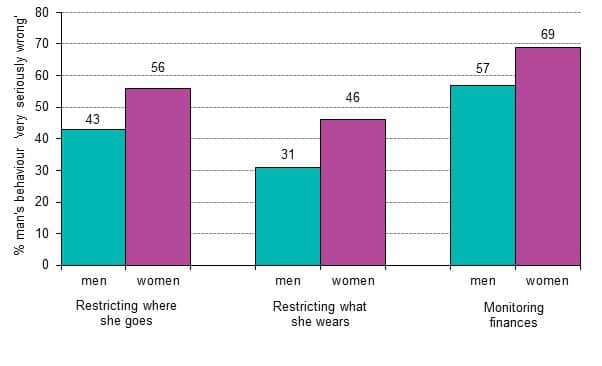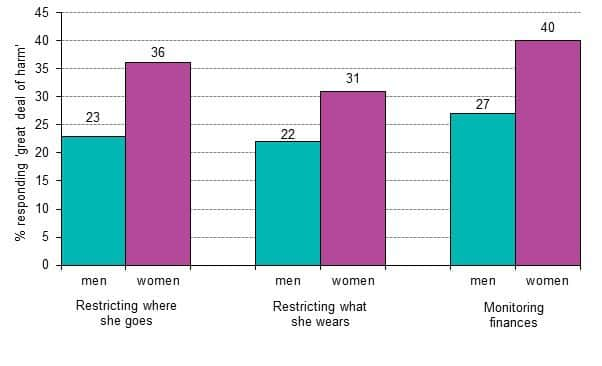Susan McConville: Too few know what is considered domestic abuse


Today marks the penultimate day of the 16 Days of Activism Against Gender-Based Violence.
Strategies such as Safer Lives: Changed Lives and Equally Safe have positioned Scotland as at the forefront of policy development when it comes to violence against women. But what about the Scottish public – what are their views on this issue?
ATTITUDES TO DOMESTIC VIOLENCE


Advertisement
Hide AdAdvertisement
Hide AdOne form of violence against women, domestic abuse, was explored in a recent report, Attitudes to Violence Against Women in Scotland, based on analysis of the 2014 Scottish Social Attitudes survey. Domestic abuse can be perpetrated by partners or ex partners and can include physical, sexual and mental and emotional abuse (such as threats, verbal abuse, racial abuse, withholding money and other types of controlling behaviour such as isolation from family and friends).
The survey, conducted by ScotCen Social Research, explored attitudes to three forms of controlling behaviour:
restricting where a woman goes restricting what a woman wears monitoring a woman’s finances
Our analysis shows that only half of people in Scotland (50 per cent) thought that a husband restricting where his wife goes is very seriously wrong, while around a third (30 per cent) thought that this did a great deal of harm to the woman. In terms of a husband restricting what his wife wears, less than half (39 per cent) thought that this was very seriously wrong, while just over a quarter (27 per cent) thought this did a great deal of harm to the woman.


At 63 per cent, more people in Scotland thought that a husband monitoring his wife’s finances was very seriously wrong. However, similar to the other scenarios, only just over a third (34 per cent) believed this did a great deal of harm to the woman.
These figures seem to suggest that, despite Scottish policy acknowledging controlling behaviour as a form of domestic abuse, there is still some way to go in terms of relaying this message to the general public.
GENDER GAP
But should such messaging be aimed equally at women and men? The analysis by researchers at ScotCen explored whether attitudes differed by gender, and found a significant gender gap.
Women were more likely than men to regard all three forms of controlling behaviour as seriously wrong and harmful, highlighting a gender gap in perceptions of what is, and what is not, regarded as acceptable behaviour in a relationship.
WHAT ARE THE POTENTIAL IMPLICATIONS
Advertisement
Hide AdAdvertisement
Hide AdThe findings from the Scottish Social Attitudes survey show that there is an important gender gap to address not only because men are more commonly (although not always) the perpetrators of domestic abuse, but also as part of a wider attempt to challenge harmful gender stereotypes which have negative implications for both children and adults - whether they are girls or boys, women or men. While it is clear that some key messaging needs to be targeted at men, there is still work to be done on educating the Scottish public as a whole and changing cultural beliefs about gender and relationships, in particular - whether through campaign initiatives aimed at the general public, initiatives in the workplace, in further and higher education, or in schools.
16 Days of Activism is an international campaign which calls for the eradication of all forms of violence against women and raises awareness about gender-based violence as a human rights violation. The European Commission describes gender-based violence as both a cause and consequence of gender inequalities.
Susan McConville is a Senior Researcher at ScotCen Social Research